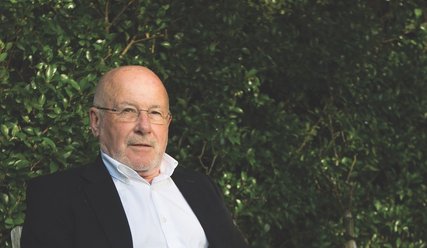Burnout tips for the professionally flammable
Late last year I interviewed 10 GPs about their burnout and their tales were scorching, covering the gamut from cinders to full flame, to rising from the ashes like the Phoenix. They weren’t for the faint-hearted but were incredibly powerful stories that the College presented anonymously to the Minister (and Ministry) of Health to give a ‘face’ to burnout. We already had the data from our burnout survey but wanted to make sure we were convincing when the College advocated for better systems and conditions.
These 10 GPs; all strangers, spread across the country and both men and women of varying ages, had several things in common. Like many GPs and rural hospital doctors I’ve encountered they were Type-A personalities. They were also hugely empathetic, and hard-working and wanted the absolute best for their patients. Mix those ingredients into a health system that constrains appointments to 15 minutes, loads up the administration requirements, and delivers increasingly complex clinical needs and that’s an ideal recipe for burnout.
Which is why we asked Nigel Latta to speak about burnout at GP21: the conference for general practice (pictured above). He’s a clinical psychologist and a funny guy – I cried laughing while he spoke, trying to subversively take notes while he admonished the audience for taking notes “you’ll never remember this.” Yet here we are in a snap Level 4 lockdown, with the College membership once again on the frontline of New Zealand’s pandemic response. Some tips on dealing with burnout seemed ideally placed.

The idea of another lockdown, the same old run-round on the hamster wheel can feel overwhelming but as Nigel said, “focus on what you have done.” Individually your achievements, and what makes you feel valued, will vary but as a profession you’ve adapted to working in a worldwide pandemic situation that is fluid, changing, and unpredictable. You’ve tested, you’ve vaccinated, you’ve delivered the quality community healthcare you always do, sometimes while stretched for resources and space and sometimes fully kitted out in PPE.
While a good portion of Nigel’s speech at conference was delivered with levity, which had the audience in raptures, there were some seriously good tools underlying his mockery of golf and those people who panic buy all the toilet paper.
Readjust your thinking to improve your outlook:
- Instead of perfectionism, try good enough
- Instead of getting rid of all the things that are stressing you out, try embracing that life is suffering
- Instead of focusing on external nonsense like money and status, try changing your focus
- Instead of counting on good things lasting, try embracing impermanence
- Instead of running on the pleasure and habituation treadmill, try gratitude practices
- Instead of suffering compassion fatigue, try focusing on what you have done and what you can do
Take two minutes
One of the things I noticed in speaking with those GPs last year about their burnout is that it can burn away like an unnoticed ember for quite a long time (some people said years) before it fully ignites. And even then, people carry on.
Coming back to normal can take two minutes at a time. As Nigel mentioned, if you want to start a new habit then don’t start with “I want to exercise every morning to reduce my stress” – that’s too big. Pick something that takes two minutes…. “I’ll get out of bed and put my shoes on.” That’s it. Shoes on. Job done.
Then build on that. Two more minutes the next day or week. And the one after until your behaviour has changed.
Seek the three things that humans need:
- Pleasure
- Calm
- Connection
What makes you happy? Hard question when you can’t remember anymore… but spend some time mulling that over. Nigel’s happy is watching videos of people online fighting over the last roll of toilet paper during a panic-buying frenzy. Mine is wearing bright coloured dresses and making Instagram stories. Are these things high-brow, worthy of adding to a CV? No. Do they bring joy? Yes.
One of the hardest parts of burnout is always being ‘on’ and part of that is overthinking – carrying work with you wherever you go. Nigel’s solution? Have the thought, then say to yourself, “just ruminating” and put it down. Repeat. And again, until you’re moving away from constant thoughts of work.
Moving on from burnout is possible, even when you’re flammable.
Other support for members
We all need a bit of support from time to time. If you or someone you know is struggling right now, there are free help and support services available.
EAP
All College members can access free EAP services confidentially by calling 800 327 669 (international number +64 9 353 0906). They have clinical psychologists, budget and financial advisors, legal advisors, and other professionals ready to support you. Please mention The Royal New Zealand College of General Practitioners when you call. View more information on the EAP website.
Small Steps
Small Steps are digital tools, developed by Te Hiringa Hauora in partnership with Clearhead. The Small Steps website https://www.smallsteps.org.nz is a place where people of Aotearoa (and further abroad!) can take small steps on their journey to improve wellbeing.
Health Care New Zealand resources
The team at HealthCare NZ has introduced a dedicated psychological health and wellbeing service to support New Zealand’s frontline health and community care workers in response to COVID-19. Supporting the resilience and wellbeing of New Zealand’s frontline health and care workers is a priority for us all and vital in our fight to unite against COVID-19.
The Wellbeing service is free, private and tailored to suit. It is as simple as calling 0800 820 080 or by emailing hcnz.wellbeing@healthcarenz.co.nz and they look after the rest.
